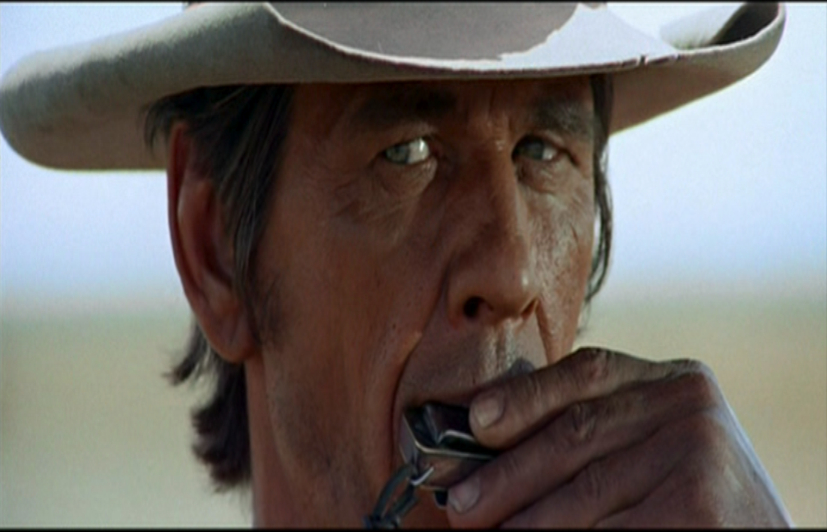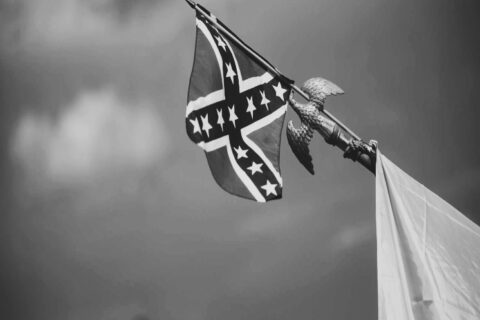Author’s Note: This is the third part in a three-part series on how genetics, geography, and religion together form nations.
For the third and final part of this series, we will look at the religious component of this process. In a secular age, religion tends to be ignored. However, much like genetics, just because something is considered taboo does not mean it is incorrect, and religion has separated nations that are similar in terms of both genetics and geography. Religion is important and forms a huge part of how a certain people comprehend and view the world, especially when religion is understood on a civilizational level.
Religion plays another key role in how nations are formed – people with radically different religions, even if closely related both genetically and living in a similar climate, cannot form a coherent nation. Notice I wrote “radically” different religions. The multitude of different Protestant denominations in Dixie does not mean that Dixie is not a nation, though there are differences between a Baptist and a Methodist, they are similar enough to be grouped under “Protestantism.” Even the distinctions between Protestants and Catholics do not really qualify here, as both share a similar heritage of Western Christendom, meaning that the Catholics and Protestants of Dixie are still Southerners, similar to the Swiss.
Samuel P. Huntington’s Clash of Civilizations is a vital resource in understanding how this process works. In his book, Huntington divides the world into nine different civilizations. The civilizations are as follows: the West, Orthodox, Africa, Latin America, Islamic, Sinic, Hindu, Japanese, and Buddhist. One thing that should stand out is how the vast majority of these civilizations are built around a particular religion – the West has Western Christendom, the Orthodox world has Orthodoxy, the Sinic has Confucianism, Japan has Shintoism, and so on. The exceptions are the African and Latin American civilizations, but it is hard to ignore the strong religious component of these civilizational differences in the majority of cases.
Perhaps one of the most critical examples regarding religion and nation-building can be observed in the former Yugoslavia. The nations of Yugoslavia were genetically similar (South Slavs) and share a similar Balkan climate, but they could not form a single nation because of the differences between the Catholics, Orthodox, and Muslims. Yugoslavia was formed in the aftermath of the Great War, and by people who valued genetics over religion. Because of their similar genetics, the diplomats at the Paris Peace Conference (1919–1920) thought this region could become a single nation, but this was tragically disproven. By forcing people who shared a fundamentally different religious outlook to live together, these diplomats would create a ticking timebomb that would explode decades later. Had there been a sensible breaking up of the South Slavs along religious lines after World War I, lives would have been saved from the Yugoslav Wars.
Another example of the importance of religion can be identified in the Mediterranean. Rome was able to unite the Mediterranean, into a more or less coherent empire, but still distinctions remained, namely between its Latin-speaking western half and the Greek-speaking eastern half. Today, there is very little of a coherent and unified Mediterranean culture, as compared to the days of the Romans, even as the climate has not really changed. What’s more, the region is now divided north-south rather than east-west. The answer as to why the Mediterranean changed is, again, tied to religion – there cannot be a single nation, or even larger civilization, formed with Christians and Muslims around the Great Sea.
This should not be taken as a call to deport all non-Catholics and non-Protestants out of Dixie, I know many good Southerners who are Orthodox, including several who are Southern Nationalists. Plus, I have learned much from Orthodox theology and, at the end of the day, Western Christians and Orthodox are still united by Christ. With Dixie’s tiny number of Orthodox Christians, and most of them converts, there is no reason to expel them. Things get significantly more complicated when we start talking about non-Christian religions, though I think the majority of Muslims, Hindus, Jews, etc. will voluntarily leave a Free Dixie. A “convert or leave” mentality would create its own problems, since doing so would create a converso problem. Regardless, there is still a religious-based component to nation forming that cannot be ignored.
This is not to say that religion is the be-all and end-all of forming a coherent nation. Though both Protestant, the Scots and Norwegians are not one nation, just as the French and Portuguese are not a single nation even as they both are Catholic. And, all these nations are distinct from each other despite being part of the West. Additionally, anyone who studies Islamic civilization will tell you that vast differences remain between Arabs, Persians, and Turks (even though all of these people are Muslims). To put it simply, though religion can cross national lines, it is much more difficult for it to cross civilizational (as defined by Huntington) lines.
Blood (genetics), soil (geography/climate), and faith (religion) all work together to form a nation. When one of these building blocks is missing, this process is not possible. Ignoring genetics leads to believing a Somalian can be Polish. Ignoring geography results in generic White Nationalism. Ignoring religion results in Yugoslavia. All three of these building blocks must work together to form a nation, and that is what Dixie has – genetic testing has shown us to be unique from the rest of the American Empire, and our climate has played a key role in forming Southern culture. Likewise, the Christ-focus of the South gives us another key element to unite around. By utilizing blood, soil, and faith, Dixie has become a coherent nation in contrast to the mess that is the United States, a polity that ignores all of these three components.







Very good sir. If only 7th grade through college had these facts ( along with many other articles from contributors to this site ), in all text books, we’d be on our way.
Hint hint …
PS : Educational “PDF’s” would be another route. Even Cliff Notes, but ol Cliff’s likely woke so nevermind.
Thank you so much.
Enjoyed the series, these are coherent thoughts that appeal to most of our people.
Thank you, I enjoyed writing it.
This is a very insightful article. It totally go against the inclusive propaganda we get hit with on a daily basis.
Thank you
Yep, people have to have a reason to feel like they belong in the same nation as others, it can’t be just imagined into existence- Yugoslavia showed that in the worst way possible, which goes against both liberal internationalism and the “race is the only thing that matters” view from some WNs.
This has been a valuable series of articles in that many normiecon conservatives would condemn it as racist, while (probably) unwittingly endorsing Stalin’s definition of a nation:
“Who among us did not learn by heart back in secondary school the one-and-only scientific definition of a nation given by Comrade Stalin, namely: “A nation is an historically formed community of people (but one neither racial nor tribal), possessing a common territory, a common language, and a commonly shared economic life; a community of psychological outlook which is manifested in a community of culture.” pp. 504-5.
Solzhenitsyn, ‘The Gulag Archipelago Two’, trans. Thomas P. Whitney